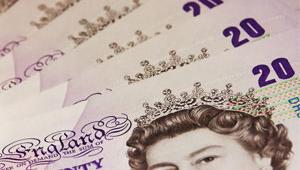It is down by £19.9bn in the period from April 2016 to February 2017 compared to the same period in 2015-16.
Today’s ONS public sector finances bulletin for February shows that the government borrowed £47.8bn in the financial year-to-date, compared to £67.7bn over the same period year.
The data for the month of February shows that public sector borrowing (excluding public sector banks) was down by £2.8bn to £1.8bn, compared with February 2016. This is the lowest February borrowing since 2007.
The Office for Budget Responsibility has forecast that public borrowing (excluding the banks) will be £51.7bn during the current financial year.
The figures also revealed that public sector net debt stood at £1,699.7bn at the end of February, equivalent to 85.4% of GDP; an increase of £111.1bn or 2.3 percentage points as a ratio of GDP since February 2016.
Meanwhile, ONS figures on consumer price inflation for February 2017 were also released today, showing the 12-month inflation rate was 2.3% in February 2017, up from 1.9% in January.
This is the highest since September 2013, having steadily increased since late 2015.
Rising transport costs, in particular fuel, were cited as the main contributors to the increase in the rate.
The rise in inflation has now crossed the Bank of England’s target of 2% raising concern from the Resolution Foundation.
Stephen Clarke, economic analyst at the foundation, said: “After 38 months inflation is back above the Bank’s target, bringing to an end the era of ultra-low inflation that has boosted living standards in recent years.
“Today’s rapid increase is part of a wider trend with price rises set to be the big living standards story of this year.
According to the Resolution Foundation, real earnings could shrink by between -0.3% and 0% in March.



















